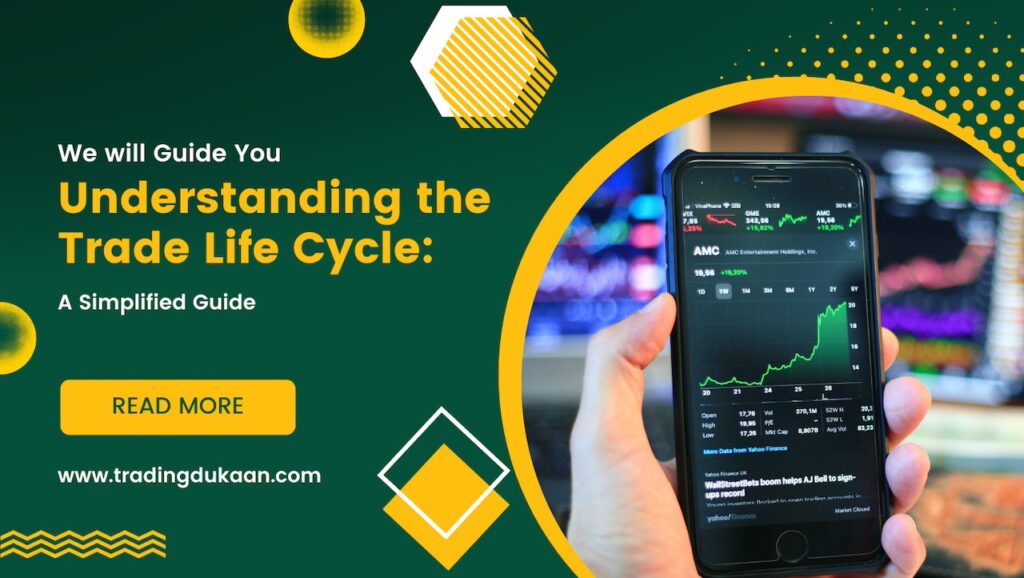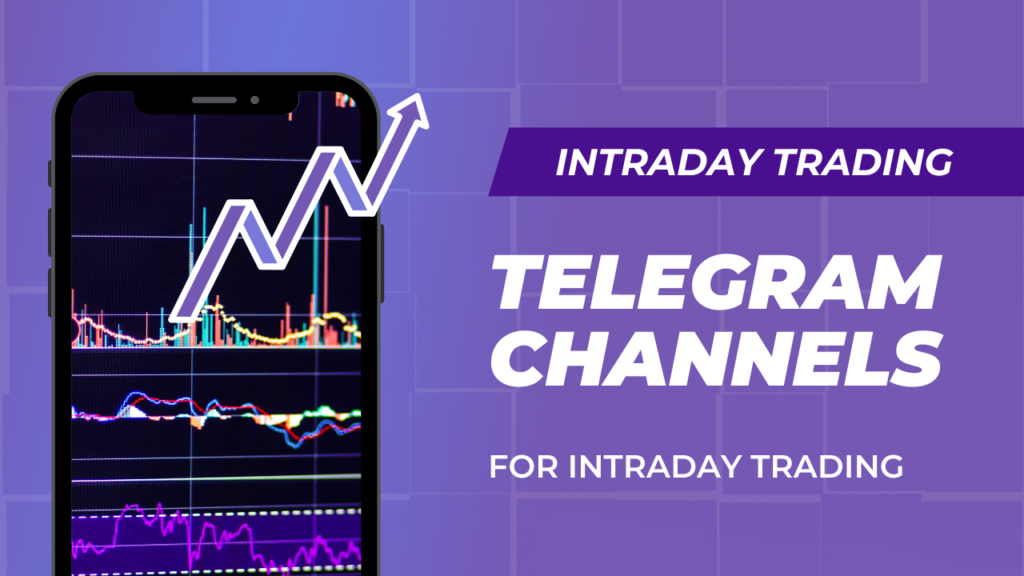Option trading involves buying and selling options, which are financial contracts that give the buyer the right, but not the obligation, to buy or sell an underlying asset at a specified price before a certain date. Options are a form of derivative, meaning their value is derived from the value of an underlying asset, such as stocks, indices, commodities, or currencies.
Types of Options Trading:
- Call Options: Give the holder the right to buy the underlying asset at a specified price (the strike price) within a set time period.
- Put Options: Grant the holder the right to sell the underlying asset at the strike price within a set time period.
Components of Options:
- Underlying Asset: The security or asset on which an option contract is based.
- Strike Price: The price at which the holder can buy or sell the underlying asset.
- Expiration Date: The date on which the option expires and can no longer be exercised.
- Premium: The price paid by the buyer to the seller (writer) of the option.
Why Trade Options?
- Leverage: Options allow traders to control a larger amount of the underlying asset with a relatively small amount of capital.
- Flexibility: Traders can adopt various strategies, from conservative to high risk, including hedging positions in other investments.
- Potential Returns: Options can provide high potential returns on investment, often higher than traditional stock trading, particularly if the market moves favorably relative to the trader’s position.
- Risk Management: Options can be used to hedge against potential losses in other portfolio holdings.
Option Trading Strategies:
- Buying Calls: Ideal for those expecting an increase in the price of the underlying asset.
- Buying Puts: Suitable for those anticipating a decline in the price of the underlying asset.
- Covered Call: Involves holding a long position in an asset and selling a call option on the same asset to generate income.
- Protective Put: Involves buying a put option to serve as protection against a decrease in the stock price.
- Spreads: Involving buying and selling multiple options of the same type but different strike prices or expiration dates to limit risk.
- Straddles and Strangles: Strategies that allow traders to profit from significant moves in either direction in the underlying asset’s price.
Risks of Option Trading:
- Complexity: Options can be complex and require a substantial understanding of the market and the specific conditions under which they offer gains.
- Liquidity: Some options contracts are thinly traded, which can result in larger bid-ask spreads and a higher cost of trading.
- Expiration: Options have an expiration date after which they become worthless if they are “out of the money” (i.e., they would not result in a profitable transaction if exercised).
- Volatility: Options can be highly susceptible to market volatility, making them risky if the market moves unfavorably.
Option trading offers a versatile toolkit for traders and investors, providing opportunities to speculate on market movements, hedge existing positions, and generate income. However, the inherent complexities and risks demand a good understanding of financial markets and thorough research before participating. Traders often use financial news, analytical tools, and market signals to inform their trading decisions in this challenging yet potentially rewarding environment.
Top 10 Option Trading Telegram Channels in India
For traders in India looking to delve into options trading, Telegram channels serve as a crucial resource. These channels offer a wealth of information including real-time alerts, strategic advice, and educational content, all tailored to the Indian market. Below, we provide a focused guide to the top 10 Telegram channels for option trading in India, complete with detailed descriptions and a handy tabular format for quick reference.
Detailed Descriptions of Top Option Trading Telegram Channels in India
- Nifty Trading Academy:
- Focus: Specializes in providing insights and strategies specifically for Nifty trading.
- Why Join?: Ideal for traders focusing on NSE, offering strategies that are tested with Nifty’s market movements.
- Trade Gurus India:
- Focus: Delivers comprehensive market forecasts and insights on options setups.
- Why Join?: Great for traders who want to understand market trends and how to position their trades.
- India Options Experts:
- Focus: Offers trading tips and advice from seasoned options trading professionals.
- Why Join?: Beneficial for those seeking expert guidance and proven trading strategies.
- Market Prophets:
- Focus: Provides educational content alongside live trading sessions.
- Why Join?: Perfect for beginners and intermediate traders looking to learn and apply new strategies in real-time.
- Bulls on Wall Street India:
- Focus: Specializes in intraday options trading strategies.
- Why Join?: Suitable for day traders looking for quick, strategic trades within market hours.
- Options Trade King:
- Focus: Focuses on teaching how to generate consistent income from options trading.
- Why Join?: Ideal for individuals looking for recurring income through smart options strategies.
- Smart Trading Tips:
- Focus: Known for strategic calls and puts.
- Why Join?: Offers clear, actionable advice that helps in making quick decisions.
- The Option School:
- Focus: Provides in-depth tutorials and strategy sessions to deepen trading knowledge.
- Why Join?: Excellent for traders who prioritize continuous learning and skill improvement.
- Traders Point:
- Focus: Assists traders in navigating both options and futures markets.
- Why Join?: Good for traders interested in diversifying their trading beyond just options.
- Profit Mart:
- Focus: Regularly updates with market analysis and trading signals.
- Why Join?: Helpful for traders who need frequent market insights and signal updates to guide their trading decisions.
| Channel Name | Focus Area | Key Benefit |
| Nifty Trading Academy | Nifty insights and strategies | Tailored strategies for NSE markets |
| Trade Gurus India | Market forecasts, options setups | Insight into market trends and positioning |
| India Options Experts | Expert trading tips | Access to seasoned trading advice |
| Market Prophets | Education, live trading sessions | Learn and apply strategies in real-time |
| Bulls on Wall Street India | Intraday trading strategies | Strategies for effective day trading |
| Options Trade King | Income strategies from options | Learn to generate consistent income |
| Smart Trading Tips | Calls and puts strategies | Actionable trading advice |
| The Option School | In-depth tutorials and strategies | Continuous learning and skill development |
| Traders Point | Options and futures market help | Help with trading diversification |
| Profit Mart | Market updates and trading signals | Frequent insights and trading signals |
Choosing the right Telegram channel can dramatically enhance your options trading experience in India. Each channel listed offers unique strengths, whether it’s market-specific insights, educational content, or live trading support. Review these options to find the best fit for your trading style and needs, ensuring you remain well-informed and responsive in the fast-paced trading environment.
Top 10 Global Option Trading Telegram Channels
Access to timely and relevant trading insights is crucial for success in option trading, irrespective of geographic location. For traders worldwide, Telegram channels are an indispensable resource, offering real-time trading signals, strategic advice, and a platform for learning. This guide focuses on the top 10 global option trading Telegram channels, providing detailed descriptions and a quick-reference table to help you select the best fit for your trading needs.
Detailed Descriptions of Top Global Option Trading Telegram Channels
- Global Trade House:
- Focus: Provides analysis and trading strategies across multiple global markets.
- Why Join?: Ideal for traders looking to engage with international market trends and diverse strategies.
- International Options Network:
- Focus: Connects traders worldwide, sharing strategies, insights, and market updates.
- Why Join?: Great for those seeking a global trading community with shared knowledge and experiences.
- World Markets Trading:
- Focus: Offers tips and strategies for engaging with various world markets.
- Why Join?: Beneficial for traders who operate across different markets and require broad insights.
- Global Trading Signals:
- Focus: Specializes in delivering trading signals for options across major markets.
- Why Join?: Perfect for traders who need reliable and actionable trading signals for quick decision-making.
- Cross Borders Traders:
- Focus: Provides insights and strategies for international trading, covering cross-border market nuances.
- Why Join?: Suitable for traders dealing with multi-national trading environments and seeking tailored strategies.
- Universal Market Insights:
- Focus: Delivers market news and options trading strategies applicable to various global markets.
- Why Join?: Ideal for those who need ongoing updates and strategies that apply across different markets.
- Earth Traders Group:
- Focus: Focuses on diverse trading approaches and strategies for global market participants.
- Why Join?: Good for traders seeking to learn from a variety of trading styles and market approaches.
- Global Options Elite:
- Focus: Offers advanced trading techniques and high-level market analysis.
- Why Join?: Excellent for experienced traders looking for sophisticated strategies and deeper market analysis.
- World Traders Academy:
- Focus: Provides education and live trade sessions for options trading on a global scale.
- Why Join?: Great for traders aiming to enhance their skills through education and real-time practice.
- International Trade Hub:
- Focus: Shares trading strategies and market analysis for various international markets.
- Why Join?: Helpful for traders who appreciate a mix of strategy sharing and market analysis for informed trading.
| Channel Name | Focus Area | Key Benefit |
| Global Trade House | Multiple market strategies | Insights on international market trends |
| International Options Network | Global trading community | Access to a community of global traders |
| World Markets Trading | Various world markets strategies | Broad market insights and strategies |
| Global Trading Signals | Trading signals for global options | Timely and actionable trading signals |
| Cross Borders Traders | International trading insights | Strategies tailored to cross-border trading |
| Universal Market Insights | News and strategies for global markets | Ongoing updates and applicable strategies |
| Earth Traders Group | Diverse global market approaches | Exposure to a variety of trading styles |
| Global Options Elite | Advanced trading techniques and analysis | Sophisticated strategies and deep analysis |
| World Traders Academy | Education and live trading | Skill enhancement and practical experience |
| International Trade Hub | Strategy sharing and market analysis | Combines strategic advice with market analysis |
The global options trading landscape is diverse and requires a resourceful approach to stay ahead. Each of the Telegram channels listed above offers unique insights and advantages, catering to various aspects of global trading. Evaluate these options to choose the best channel that aligns with your trading goals and operational markets, ensuring you maximize your trading potential in the global arena.
Dos of Option Trading
- Do Educate Yourself: Before diving into options trading, make sure you understand key concepts like the Greeks (Delta, Gamma, Theta, Vega), how options pricing works, and the various trading strategies. Use resources like books, courses, and webinars.
- Do Start with a Trading Plan: Develop a clear trading strategy that includes your financial goals, risk tolerance, and specific criteria for entering and exiting trades. Stick to this plan consistently.
- Do Use Risk Management Techniques: Always know how much of your total capital is at risk with each trade. Use stop-loss orders or position sizing to manage exposure and avoid significant losses.
- Do Practice with a Demo Account: Many platforms offer simulation trading, which allows you to practice strategies and get a feel for the market dynamics without risking real money.
- Do Keep Up with Market News: Events like earnings announcements, economic indicators, and geopolitical events can affect market prices. Stay informed to make educated decisions.
- Do Review and Adjust Your Strategy Regularly: Market conditions change, and what worked yesterday may not work tomorrow. Regularly review your trades to learn from your successes and mistakes, and adjust your strategy as needed.
Don’ts of Option Trading
- Don’t Invest Money You Can’t Afford to Lose: Options trading can be risky, and there is always the potential to lose money. Only trade with money that you can afford to lose without impacting your financial security.
- Don’t Overcomplicate Your Strategy: While sophisticated strategies can be appealing, they often increase the risk of costly mistakes. Start with simple strategies, such as buying calls or puts, before moving on to more complex trades like spreads or straddles.
- Don’t Ignore the Impact of Time Decay: Options are time-sensitive instruments, and their value can decrease as the expiration date approaches. Always be aware of the expiration date and how time decay can affect your trade.
- Don’t Let Emotions Drive Your Trading Decisions: Emotional trading often leads to irrational decisions, such as holding onto losing positions too long or taking on too much risk. Use your trading plan to guide your actions and stay disciplined.
- Don’t Neglect Tax Consequences: Option trading can have significant tax implications, especially if you are trading frequently. Keep accurate records and consider consulting with a tax professional.
- Don’t Trade Based on Tips or Rumors: Always conduct your own research before entering a trade. Tips and rumors are unreliable and can lead to poor trading decisions.
FAQs on Option Trading
1. What is the difference between buying options and selling options?
- Buying options gives you the right to buy (call option) or sell (put option) the underlying asset at a specific price before the option expires. This strategy is generally less risky and has a fixed potential loss limited to the premium paid for the option.
- Selling options, also known as writing options, involves you granting someone else the right to buy or sell the underlying asset at a set price before the expiration. This can be more risky, as it potentially involves unlimited losses, especially with naked calls.
2. How do I choose the right strike price for an option?
- Choosing the right strike price depends on your risk tolerance, market outlook, and strategy. Consider factors like the current price of the underlying asset, expected volatility, and time until expiration. In-the-money options are more expensive but less risky, while out-of-the-money options are cheaper and riskier but offer higher potential returns.
3. What are the most common risks associated with option trading?
- The most common risks include market risk, where the price moves unfavorably; liquidity risk, where you might not be able to execute a trade at favorable prices; and time decay (theta), where options lose value as they approach expiration. Understanding and managing these risks is crucial for successful option trading.
4. Can options trading be a full-time profession?
- Yes, some traders do make a full-time profession out of options trading, especially those who are experienced and have developed effective strategies. However, like any trading, it requires a significant amount of knowledge, experience, and capital. It also involves substantial risks and can be stressful given the potential for large financial losses.
5. What resources are best for learning about options trading?
- Start with basic finance and options trading books, reputable financial news websites, and educational videos. Consider enrolling in courses offered by financial institutions or online platforms like Coursera or Udemy. Engaging with trading communities and forums can also provide insights and experience sharing.
6. How much money do I need to start trading options?
- The amount of money needed can vary widely based on the market, the broker’s requirements, and your trading strategy. Some brokers allow you to start with a few hundred dollars, while others might require more. It’s important to only use disposable income that you can afford to lose.
7. What should I do if I incur a significant loss in options trading?
- First, it’s important to remain calm and not make hasty decisions to “win” back losses. Review your trading strategy and identify what went wrong. Consider if it was a one-time mistake or if there is a flaw in your strategy. Sometimes, taking a break to reassess and learn more can also be beneficial.



